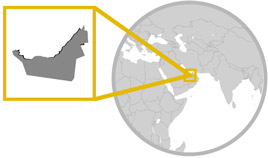Before children can be allowed to enter the country, their parent must work at least for 90 days. Teenage dependants must understand that there are serious repercussions for transporting alcohol and/or drugs into the country or engaging in drunken or unsober behaviour.
Pet-wise, only 2 pets are permitted per family unit, all dogs must be imported only as service, guard or hunting dogs and it’s important to note that the following breeds are banned:
-
Japanese Spitz
-
Japanese Akita / Akita Imu / Akita
-
Affenpinscher
-
Griffon Bruxellois / Brussels Griffon / Brabaneon / Belgian Griffon
-
Hovawart
-
Boxer
-
Bull Dog / English Bull Dog
-
Rottweiler
-
Stafford Bull Terrier
-
Dandie Dinmont Terrier
-
Lancashire Heeler
-
Swedish Valhunde / Swedish Cattle Dog / Vasgoispats
-
Mastiff / Old English Mastiff / Bull Mastiff / Neapolitan Mastiff
-
Newfoundland
-
Great Dane / Deutscher Dogge
-
Bergehni
-
Yorkie
-
Pomeranian
-
Chihuahua
All other dogs, cats and ferrets must meet the following requirements:
-
An ISO 11784/11785 compliant 15 digit pet microchip, or another microchip (but you will require your own microchip scanner in this case)
-
A Rabies vaccination no less than 30 days but no more than 12 months prior to entry into the country
-
A copy of the Rabies Certificate endorsed by the Saudi Arabian Embassy or Consulate in your own country as well as a USDA or CFIA accredited veterinarian
-
A Saudi Arabia Veterinary Certificate completed and endorsed by a USDA or CFIA accredited veterinarian, which also needs to be endorsed by the Saudi Arabian Embassy or Consulate in your own country
-
An import permit from the Ministry of Agriculture
-
A letter to the Director of Customs in Saudi Arabia
-
An application form for an entrance notification completed by the company you work for or a separate agent in Saudi Arabia
Turtles, Parrots and other exotic animals may require additional permits under the Convention of International Trade in Endangered Species of Wild Fauna and Flora (CITIES)

